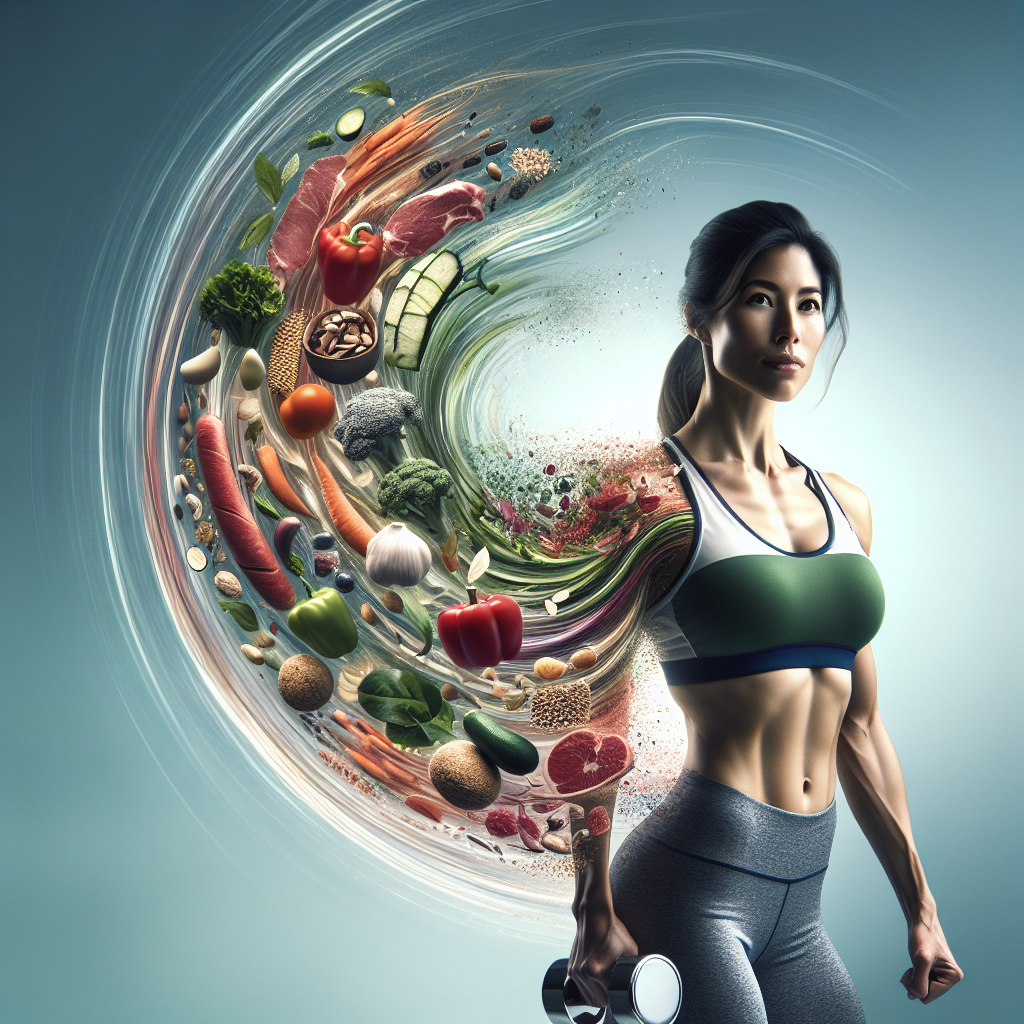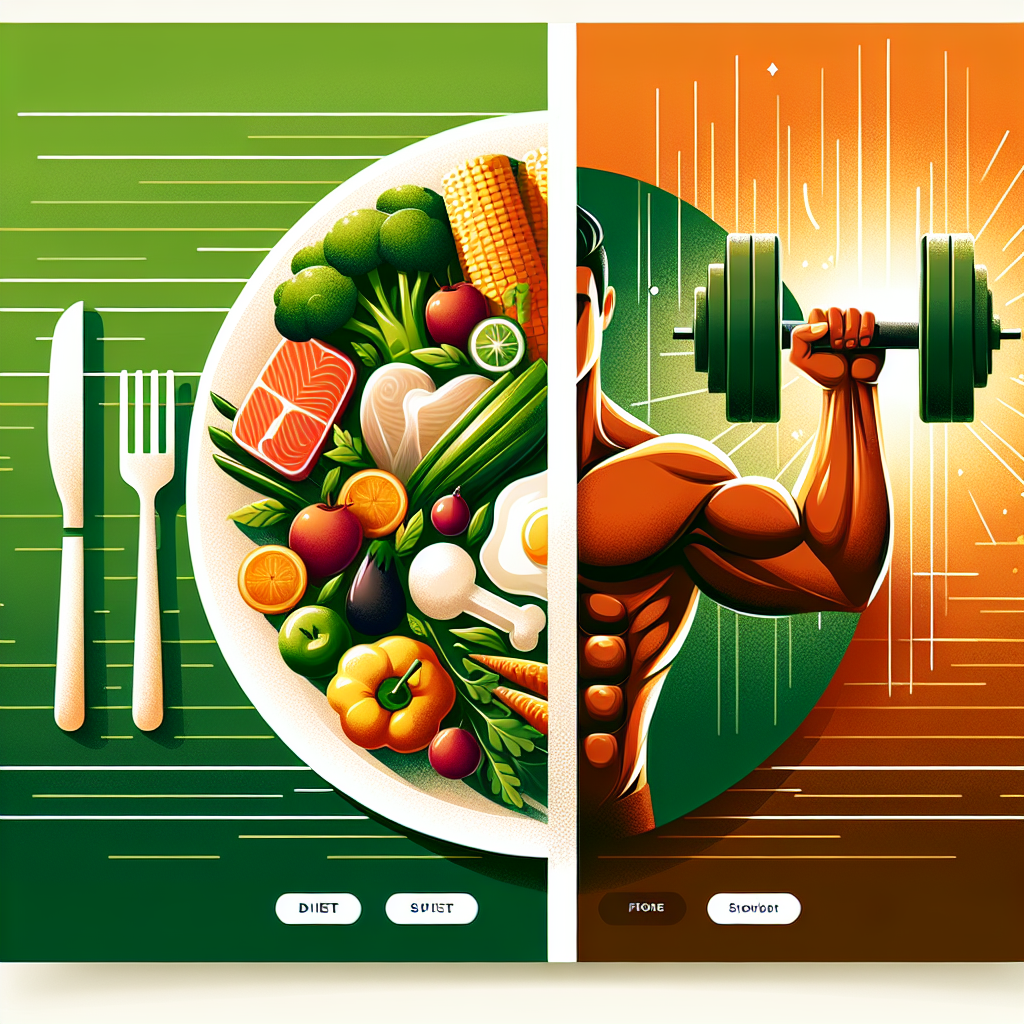Diet and Muscle Gain: Balancing the Two for Success 💪
Are you on a mission to gain muscle but find yourself puzzled over the right diet to fuel your efforts? You’re not alone! Many fitness enthusiasts struggle to strike the perfect balance between diet and muscle gain. In this post, we’ll dive into how you can optimize your nutrition for maximum muscle growth while maintaining a healthy lifestyle.
Table of Contents
1. Introduction to Muscle Gain and Diet
2. Understanding Your Caloric Needs 🔍
3. The Importance of Protein 🍗
4. Carbs: Your Energy Source 🍞
5. Fats: The Unsung Heroes 🥑
6. Meal Timing and Frequency ⏰
7. Conclusion: Achieving Balance ⚖️
8. FAQs

Introduction to Muscle Gain and Diet
Before we delve into specifics, it’s important to understand that muscle gain is not just about lifting heavy weights. Your diet plays a crucial role in providing the nutrients your body needs to repair and grow muscle tissue. Let’s explore how to craft a diet that complements your workout routine.
Understanding Your Caloric Needs 🔍
The first step in balancing diet and muscle gain is understanding your caloric needs. To build muscle, you typically need a caloric surplus, meaning you consume more calories than you burn. However, this doesn’t mean you can indulge in junk food. Focus on nutrient-dense foods that provide the energy and nutrients necessary for muscle growth.
The Importance of Protein 🍗
Protein is often hailed as the king of muscle-building nutrients. It provides the building blocks (amino acids) necessary for repairing and building muscle tissue. Aim for a protein intake of around 1.6 to 2.2 grams per kilogram of body weight per day. Include a variety of protein sources like chicken, fish, eggs, beans, and tofu to meet your daily needs.
Carbs: Your Energy Source 🍞
Carbohydrates are crucial for providing the energy you need for intense workouts. They replenish glycogen stores in your muscles, ensuring you have the stamina to push through your training sessions. Opt for complex carbs such as whole grains, fruits, and vegetables to keep your energy levels steady and avoid sugar crashes.
Fats: The Unsung Heroes 🥑
Fats are often misunderstood but are essential for hormone production, including testosterone, which is vital for muscle growth. Incorporate healthy fats into your diet from sources like avocados, nuts, seeds, and olive oil. Remember, moderation is key as fats are calorie-dense.
Meal Timing and Frequency ⏰
While the debate on meal timing continues, many experts agree that spreading your protein intake throughout the day can be beneficial. Aim for 3-6 meals or snacks daily, ensuring each contains a good mix of protein, carbs, and fats. This approach can help sustain energy levels and support muscle repair.
Conclusion: Achieving Balance ⚖️
Balancing diet and muscle gain requires understanding your body’s needs and making informed nutritional choices. By focusing on a diet rich in proteins, complex carbs, and healthy fats, and paying attention to meal timing, you’ll be well on your way to achieving your muscle-building goals.
FAQs
How much protein should I consume to gain muscle?
Aim for 1.6 to 2.2 grams of protein per kilogram of body weight daily.
Can I gain muscle without a calorie surplus?
It’s challenging, but possible with a precise balance of macronutrients and strength training.
What are the best foods for muscle gain?
Focus on lean proteins, whole grains, healthy fats, and a variety of fruits and vegetables.
How important is meal timing for muscle growth?
While not essential, regular protein intake throughout the day may support muscle repair and growth.
Can I indulge in cheat meals while trying to gain muscle?
Occasional treats are fine, but moderation is key to ensure you don’t derail your progress.
With these insights, you’re now ready to embark on your muscle-gaining journey with confidence. Remember, the key is consistency and listening to your body’s needs. Happy lifting! 💪





